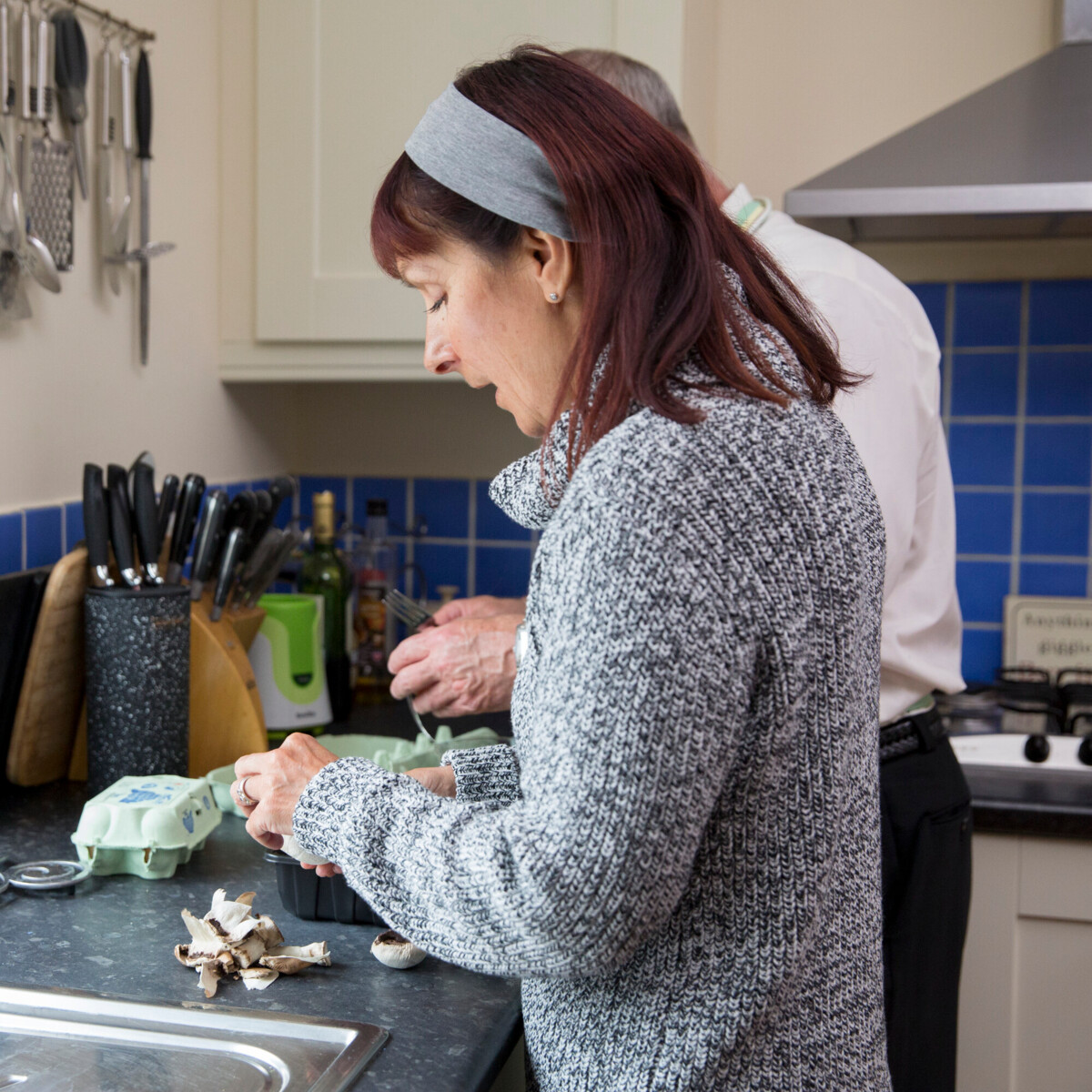Sbba’s Story: How I engage my MP for better cancer care
Sbba's story
Hello everyone! My name is Sbba, and I'm a 55-year-old mother of three, living in sunny Berkshire. Three years ago, my life took an unexpected turn when I was diagnosed with ovarian cancer. I had no symptoms, no family history of cancer — it completely blindsided me. As many of us know, cancer doesn't just affect individuals; it touches everyone around us. Statistics show that one in two of us will be affected by cancer in our lifetimes, meaning if it's not you, it could be someone you love.
During my treatment, I experienced numerous health inequalities, especially as a woman of South Asian heritage. There were delays and gaps in my care that might have been avoided if I had been diagnosed earlier. My experience was a tough one, bringing me to some very dark places both physically and mentally. I truly wouldn't be here today without the support I received from Macmillan Cancer Support. This experience motivated me to start campaigning for better cancer care.
Professionally, I'm a radio presenter, which has helped me build a good relationship with my local Member of Parliament (MP). Over time, I've developed this connection into a powerful advocacy tool. I've invited my MP to participate in my radio show, attend charity events, and ask questions in Parliament about cancer care. Engaging with your MP can be incredibly impactful, and I'd like to share some of the key strategies that have worked for me.
Here are my top tips for engaging your MP...
1. Get to Know Your MP
Utilise tools like social media and Google to find out what campaigns they support and what issues they’re passionate about. A useful website, They Work For You or Hansard, can also provide insights into their voting record, giving you a clearer picture of where they stand on various issues.
2. Build a Relationship
Building a strong relationship with your MP takes time and effort, but it's worth it. Whether through emails, letters, or face-to-face meetings, consistent and meaningful communication is key. Remember, your MP is there to represent all their constituents, regardless of who you voted for. Engage with them as their constituent, and they are more likely to act on your behalf.I found it incredibly beneficial to invite my MP to local events, such as charity coffee mornings. This not only builds rapport but also allows them to see first-hand the issues and causes that are important to you. Additionally, fostering a positive relationship increases the chances of your MP being more responsive and supportive.
3. Be Clear and Concise
When contacting your MP, be clear about what you are asking them to do. MPs juggle many issues, so your request needs to be straightforward. Start with a powerful statement or fact to grab their attention and clearly outline the problem and why you are contacting them. Personal stories are incredibly effective in making your case, so don’t hesitate to share how an issue has affected you directly.Whether you’re writing a letter or meeting in person, being concise and to the point will ensure your message is heard. Remember, MPs receive thousands of communications daily; a well-crafted, concise message will stand out.
4. Be Prepared
If you decide to meet your MP in person, preparation is crucial. Know exactly what points you want to discuss and what outcomes you hope to achieve. Structure the meeting similarly to how you would structure a letter: outline the problem, discuss the seriousness, provide a solution, and clearly state the action you want them to take.If attending with others, plan who will speak and when to ensure the meeting is efficient and productive. After the meeting, follow up with an email or letter summarising the discussion and action points. This shows professionalism and helps keep the MP accountable for any commitments made.
5. Stay Engaged
Don't rely on just one form of communication. Use a mix of emails, letters, social media, and in-person meetings to maintain a presence. This multi-channel approach increases the likelihood of your MP taking notice of your concerns.Engagement should be ongoing. Keep your MP updated on any developments in your campaign or cause. This demonstrates commitment and helps to build a lasting relationship.
Change takes time, and sometimes multiple follow-ups are needed to keep your issue on the MP's radar. Be persistent but remain respectful. Thank them for their time and cooperation, even if they haven't yet taken the action you desire. A considerate approach is more likely to foster a positive relationship and encourage future collaboration.
6. Leverage the Power of Collective Action
Remember, there is strength in numbers. Working collectively under the banner of an organisation like Macmillan can amplify your voice and show your MP that your concerns are widely shared among their constituents. Consider organising petitions, letter-writing campaigns, or group meetings with your MP to increase your impact.Now it's your turn
Engaging with your MP can feel daunting, but remember, they are there to represent you. By getting to know them, building a relationship, and clearly communicating your concerns, you can make a meaningful impact. Your story is powerful, and by sharing it with your MP, you help shape the policies and decisions that affect cancer care in our communities. Together, we can advocate for better support, funding, and care for all those affected by cancer.Thank you for reading, and I hope these tips empower you to engage with your MP and advocate for change.
How you can help
Write to your MP
Make your voice heard by using our simple tool to welcome your new MP and share your hope for the future of cancer care.Join our campaign network
Join our campaigner network and be part of a movement of tens of thousands of people across the UK, who are campaigning for better support for people living with cancer. Simply sign up to our short email updates today and you’ll be the first to hear how you can help.Got questions? We want to hear from you! Email us at campaigns@macmillan.org.uk.
About our information
This information was written by the Advocacy team and edited by our Digital Content team.
Learn more about the campaign work we do to influence governments and shape policy.Read more
-
Blogs 04 Apr 2023In this article we highlight some diet and cancer risk claims you may have seen on TV or in the news and give you more of the facts behind these headlines.
-
Blogs 15 Feb 2023The cost of food and the weekly shop are continuing to rise. Recent events mean the price of certain food items such as salad and fruit have gone up or there's a shortage in the shops. This can make...
-
Blogs 21 Feb 2025We hope this information can help answer some questions if you, or someone you know, is having treatment for cancer during Ramadan.






